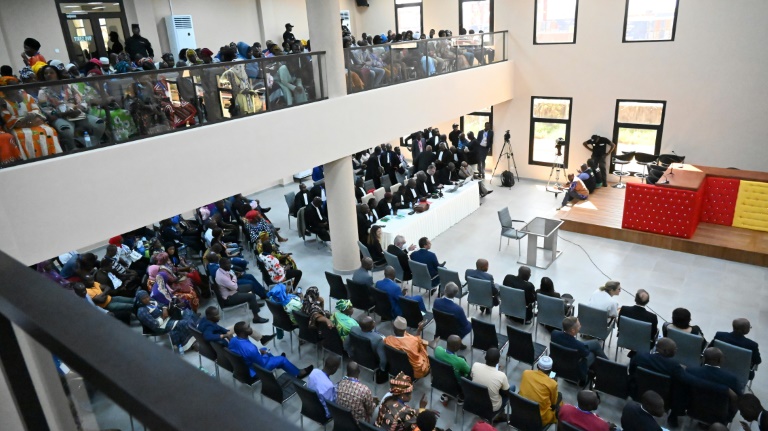The trial of Guinea’s former dictator Moussa Dadis Camara over the killings of 156 opposition supporters and rapes of at least 109 women at a 2009 rally has resumed weeks after it was suspended in May due to strikes by lawyers and prison wardens.
The proceedings got under way again on Monday (10 July) after weeks of delays since May 29 — first due to a boycott by lawyers for unpaid salaries and later because of a strike by prison wardens. The trial began on 28 September 2022, exactly 13 years after the massacre at a stadium in the capital, Conakry. Camara and 10 other ex-military and government officials stand accused in the killing of 156 people and the rape of at least 109 women by pro-junta forces at an opposition rally that was held there. Soldiers blocked off the exits, fired tear gas into the stadium and opened fire with live ammunition, with mass rapes ensuing in the hours that followed.
Former leader Camara has denied ordering the slaughter and blamed “uncontrollable” security forces and a former adviser for leading it. The repeated delays have been a major blow to the victims and their relatives, in a trial that is a first of its kind in a country ruled for decades by authoritarian regimes.
Human Rights Watch (HRW) hailed the trial in October 2022, saying that “with that, history was made, although the real work has just begun. Justice for the atrocities in Guinea — and an example of credible domestic justice globally — demands that a trial not only occur, but that it fairly and genuinely holds perpetrators to account.” But HRW has also expressed concern that the trial could be threatened by dwindling financial resources.



